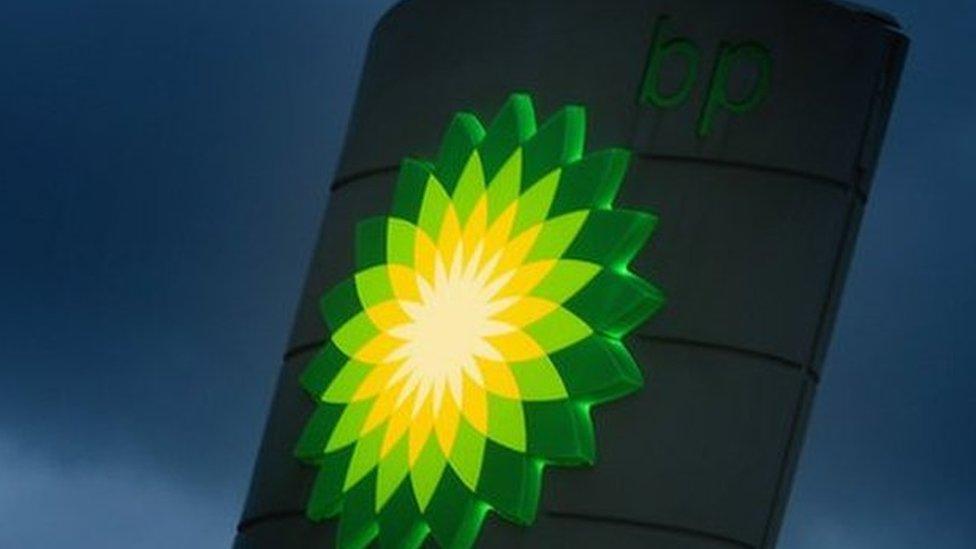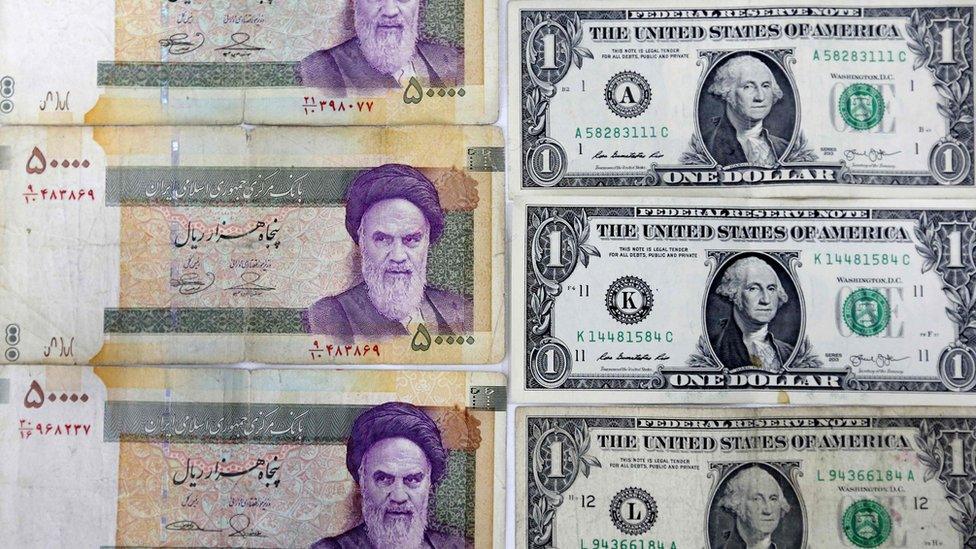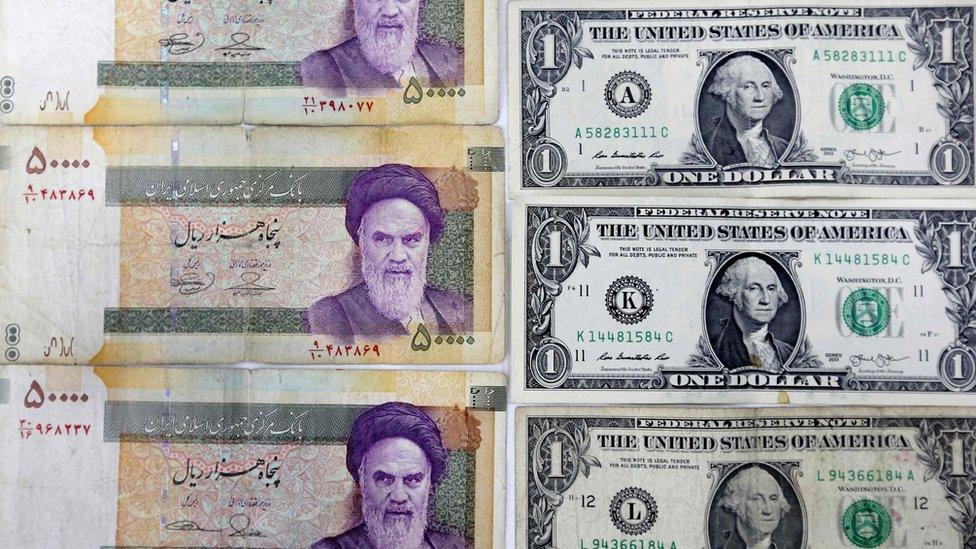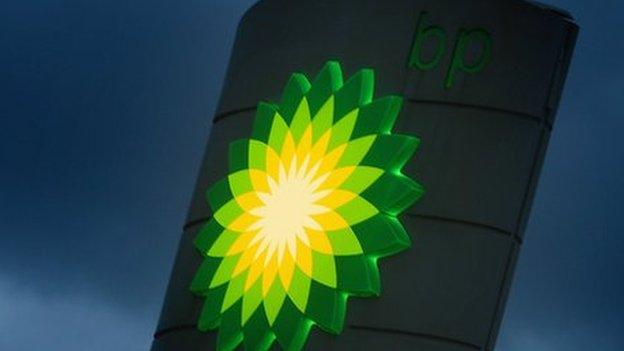BP delays Rhum North Sea work over Iran sanctions clarity
- Published

BP has delayed work on its Rhum field in the North Sea while it seeks clarity over US sanctions on Iran.
The oil giant co-owns the field - about 240 miles north east of Aberdeen - with the Iranian Oil Company, although BP's stake is in the process of being sold to Serica Energy.
A fresh well was due to be drilled but BP has said that work is now on hold.
Both firms said they remained committed to the deal, which is due to be completed in the second half of 2018.
The news came as BP announced plans to cut 3% of its global workforce, meaning more than 500 jobs could go worldwide.
The company said it was restructuring operations to make it more competitive and improve efficiency.

It is not known how many of the 1,500 jobs in its North Sea operation are at risk.
Rhum and its neighbouring assets, the Bruce and Keith fields, deliver about 5% of the gas produced in the UK.
BP is selling its holdings in all three.
The two companies said they were seeking dispensation from any US sanctions and had the backing of the UK authorities.

Analysis by Simon Jack, BBC Business editor
The Rhum gas field accounts for 5% of all UK gas production and work was due to start on opening a new well to increase the amount of gas flowing to the mainland.
Some of BP's operations at Rhum are conducted under licence from US authorities and that licence is due to expire at the end of September. As the field is co-owned by a subsidiary of the Iranian state oil company there is considerable doubt the licence will be renewed, and so BP has decided to defer that new work and further conceded it is unclear whether current production will be interrupted by the looming sanctions.
BP's operations in the US dwarf those it has in the North Sea and the company told the BBC it intends to fully comply with any new US sanction regime.
BP is in the process of selling its 50% share in the field to smaller operator Serica and both parties said they intend to press ahead with the sale, but given a condition of that sale is securing a US licence, a question mark must hang over both the deal and the Rhum gas field's future while it is 50% Iranian owned.
Yet another example of the extraordinary extra-territorial reach of US trade policy.

The sanctions followed US President Donald Trump's announcement that the US was withdrawing from the Iran nuclear deal.
A spokesman for BP said: "BP takes great care to ensure we always comply with applicable sanctions. BP has decided to defer some planned work on the Rhum gas field in the North Sea while we seek clarity on the potential impact on the field of recent US government decisions regarding Iran.
"BP and Serica are now in discussion with the UK and US authorities to better understand the situation and steps that may be required to ensure continued operation of Rhum."
Mitch Flegg, Serica's chief executive, said: "We will be working with our partners and the UK government to identify measures, acceptable to the US authorities, to protect safe and efficient Rhum operations and ensure maximum economic recovery of reserves from this valuable UK resource."
US sanctions
Some support services for the Rhum field are provided under licence from the US Office of Foreign Assets Control (OFAC).
The licence is due to expire at the end of September 2018 and it is unclear whether it will be renewed in the light of US sanctions against Iran.
Serica said meetings are scheduled to take place with OFAC in the coming weeks.
In 2010, the Rhum field was shut down because production could have been breaking European Union sanctions against Iran.
- Published10 May 2018

- Published9 May 2018
- Published21 November 2017

- Published17 November 2010